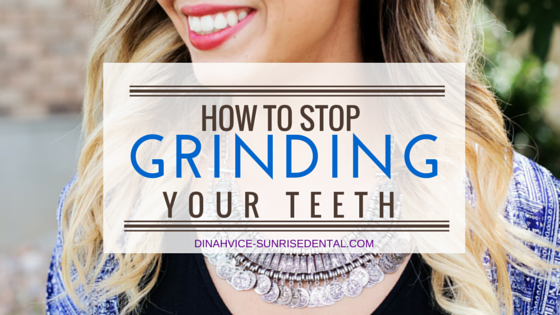Promoting Healthy, Beautiful Smiles at School and Year Round!
August 13, 2015What Causes Cavities?
September 15, 2015Grinding or clenching your teeth from time to time doesn’t usually cause much harm to your teeth. However, if you grind your teeth on a regular basis your oral health could be at risk.
Teeth grinding, also known as bruxism, usually occurs during sleep and is often attributed to stress, anxiety, crooked teeth, or sleep apnea. If you grind your teeth while sleeping you usually wake up with a sore jaw or a dull headache. Many times those who grind their teeth aren’t even aware of it. If you think you’re a teeth grinder, tell your dentist the next time you visit and they can investigate for signs of bruxism.
 Consequences of Teeth Grinding
Chronic teeth grinding can cause your teeth to loosen or fracture. It can also wear your teeth down to stumps so that bridges, crowns, and root canals may be needed. Severe teeth grinding can also affect your jaws and cause TMJ.
How to Stop Grinding
Besides using a mouth guard, here are a few tips to help you stop grinding:
Consequences of Teeth Grinding
Chronic teeth grinding can cause your teeth to loosen or fracture. It can also wear your teeth down to stumps so that bridges, crowns, and root canals may be needed. Severe teeth grinding can also affect your jaws and cause TMJ.
How to Stop Grinding
Besides using a mouth guard, here are a few tips to help you stop grinding:

- Avoid foods and beverages that contain caffeine.
- Avoid alcohol as grinding usually intensifies after consuming alcohol.
- Avoid chewing on gum, pencils, pens, and anything that is not food.
- Train yourself not to clench or grind by positioning the tip of your tongue between your teeth. This will train your jaw to relax.
- Relax your jaw muscles at night by holding a warm washcloth against your cheek.
